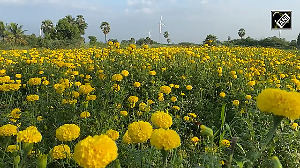Bahrain's Olympic 1,500 metres gold medallist Rashid Ramzi and two cyclists are among six athletes to test positive for the blood booster CERA at the Beijing Olympics, officials said on Wednesday.
Italy's road race silver medallist Davide Rebellin and German Stefan Schumacher, who is already banned for doping, were confirmed to have tested positive for CERA along with Ramzi in re-tests of samples taken in Beijing last year.
The International Olympic Committee (IOC) said on Tuesday it had discovered seven more positive drugs results from re-testing samples taken from Beijing involving six athletes.
The Italian and Bahrain Olympic Committees confirmed the Rebellin and Ramzi positives while the German cycling federation said Schumacher had tested positive.
Sources close to the IOC investigation said Greece's 2004 Athens Games 20 km walk champion Athanasia Tsoumeleka and Croatian 800 metres runner Vanja Perisic had also tested positive for CERA in Beijing.
Local media in Zagreb quoted senior members of the Croatian National Olympic committee (HOO) as confirming Perisic had failed a dope test. Perisic was eliminated in the first round in Beijing.
Tsoumeleka, 27, who finished ninth in Beijing, was a surprise winner in Athens after finishing only seventh in the Paris world championships in the previous year.
The Bahrain Olympic Committee said it would meet Ramzi, the country's first Olympic champion, to inform him of the findings and hear his explanation.
"While the Bahrain Olympic Committee expresses its regret at receiving this news from the International Olympic Committee it confirms that Rashid Ramzi had been subject to many tests before and during the Olympic Games in Beijing in 2008 and all the results were negative," it said in a statement.
All the athletes tested positive for CERA (Continuous Erythropoiesis Receptor Activator), the new generation of the banned blood-booster erythropoietin (EPO), for which a test was developed only recently.
International cycling president Pat McQuaid said the naming of the Italian athlete by the Italian Olympic Committee (CONI) was wrong.
"CONI have broken the rules and it is disgraceful. It is an international matter and in such circumstances, it is up to the UCI to open disciplinary proceedings," McQuaid said.
MEDALS STRIPPED
The athletes, some of whom have yet to be publicly named, can now ask to have the B samples tested in their presence.
If the B samples are positive, then the athletes face two-year suspensions if they are first time offenders and possible life bans if they have been caught cheating before, like Schumacher.
Ramzi and Rebellin could also have their medals stripped and all six could be banned from the 2012 London Olympics if their international federations, responsible for any sanctions, ban them for any period longer than six months.
The new rule was introduced by the IOC prior to the Beijing Olympics as yet another deterrent to drugs cheats, as was the storing of samples for eight years to allow re-testing once new methods of detecting banned substances are developed.
The IOC conducted close to 950 re-tests of samples, focusing mainly on endurance events in cycling, rowing, swimming and athletics.
"Of 948 samples that were analysed, seven resulted in an adverse analytical finding (AAF) concerning six athletes," the IOC said in a statement on Tuesday.
Nine athletes tested positive during the Beijing Olympics after extensive pre-Games testing caught about 40 for drugs while six horses in the equestrian events were also found to have been given banned substances.
The IOC conducted the largest ever doping operation with about 5,000 blood and urine tests during the Games.








 © 2025
© 2025